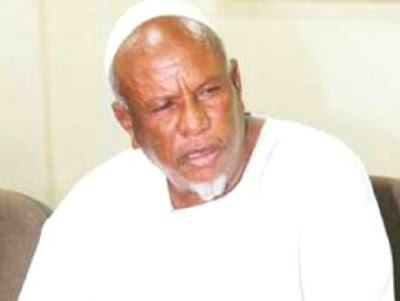 |
| Abdullah, the Sudanese father |
Manama: A Saudi father has turned down SR225,000 (Dh220,353) given to him in blood money following the death of his son.
The son died in a car accident caused by a stray camel on a highway in Sakakah, in northwestern Saudi Arabia.
The blood money was offered by the camel’s owner to the father, Arak Saqr Al Shimmari, who initially took the cheque, but returned it later, saying that he had forgiven those who caused him to lose his son and there was no need for the financial compensation.
Earlier this week, a Sudanese shepherd reportedly turned down SR300,000 in blood money following the murder of his son.
Abdullah Al Numair, from a small village in Sudan, had lived in the Saudi Red Sea city of Jeddah for several years, but returned home 15 years ago after his son Mohammad, also a shepherd, was killed in his sleep by Al Ghali, a 30-year-old African man.
The murderer was arrested and a court sentenced him to death. However, the execution was not carried out and he remained in jail ever since his arrest.
When the case of Al Ghali reached Saleh Sarhan Al Ghamdi, the head of the Jeddah office of the National Society for Human Rights (NSHR), the activist launched a search to locate the Sudanese family and help achieve a compromise under which they receive blood money and forgive the African killer.
According to Saudi daily Okaz, Saleh was able to locate Abdullah in Sudan last year and he contacted him.
“I received a phone call from Saleh Al Ghamdi requesting me to go to Jeddah urgently,” Abdullah said. “He asked me if I was willing to forgive the killer of my son, and I flatly refused. He then added that I should be in Jeddah to witness the execution. He said that I would be his guest. I turned down the invitation, but as he insisted, I eventually accepted it,” Abdullah said.
The Sudanese father arrived in the coastal city three months ago and was welcomed by Al Ghamdi.
“He opened his house for me and paid for all my expenses. He also asked me to give deep thoughts to the pardon issue, stating that in case I refused, the execution will go ahead,” he said, quoted by Okaz. “Al Ghamdi added that a benefactor had written out a SR300,000 cheque that I could encash in case I pardoned the killer. I refused the offer, and called my wife in Sudan for consultations. I was sure she would accept the blood money, but she vehemently refused, warning me that she would not allow me back in the house if I took a single riyal.”
Abdullah told Al Ghamdi that the family forgave Al Ghali for killing their son without taking the blood money.
He said the cheque was ready and that “it had my name on it, but I refused”, explaining that “I wanted only God to reward us for our decision”.
The next day, Abdullah went to the court where he documented his pardon of the murderer. He then went to the prison where he met Al Ghali, now 45, and sealed the pardon.










